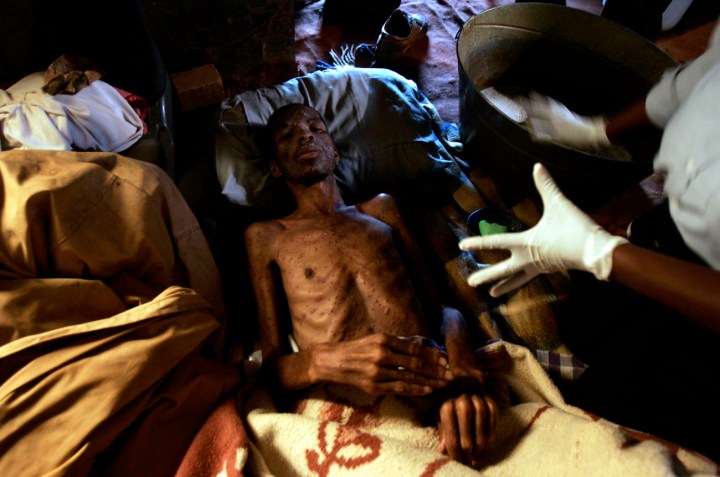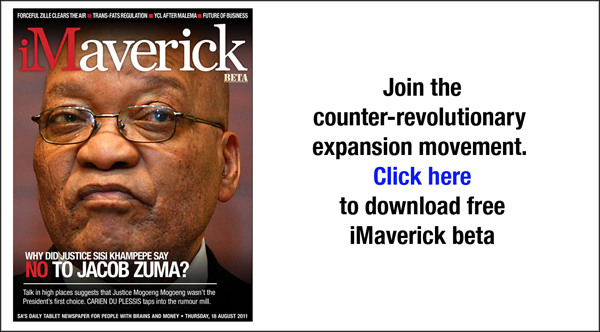Politics
Carte Blanche Report: Frail-care failure in the Eastern Cape

With a lack of state-run frail-care facilities in the Eastern Cape, NGOs are having to take up the slack. Caring for old people is no picnic, and the job becomes even harder when the provincial government is tardy with paying out the already-meagre subsidies – if it pays them at all. It's an indictment on our welfare services that frail-care homes are having to take the state to court to recoup the money owed to them. And, sadly, it's the elderly who suffer. By THERESA MALLINSON.
How society cares for its elderly is revealing of the state it is in, and in South Africa we’re doing a pretty poor job at the moment. In the Eastern Cape there, is only one state-run frail-care centre in the entire province. This means that non-governmental organisations are filling the gap – as best as they can. However, with no increase in the per-person subsidy they receive from the state since 2005, it’s an uphill battle. The subsidy is currently R1,700, when the true cost of taking care of a frail person is closer to R5,000 or R6,000 a month.
And, when the Eastern Cape’s social-welfare budget was cut in April, frail-care centres found their subsidies slashed as well – in some cases by as much as 50%. Noel Clarke, who is the general manager of Langholm House, a frail-care centre in East London told Carte Blanche: “Langholm House, although we are waiting for our audited financial statements, will probably lose something like R200,000 this past financial year. So it is a huge burden for us to bear and it is not one that can continue forever”.
Clarke said: “It affects what we can pay our staff, we have to control our food exceptionally closely, we have to almost measure the length of paper in a toilet roll.” Ekhuphumleni Frail Care, in Zwide township outside Port Elizabeth, has also been badly affected. The centre’s Mike Tsietso told Carte Blanche: “In May we got half of what we usually get. We usually get R102,000… then we got about R52,000. And there was no reason at all that was given”.
When you’re already running on a shoe-string budget, such drastic cuts mean that essentials have to be skimped on. Ekhuphumleni is now no longer able to offer physiotherapy to its elderly patients. The food budget has also been cut, and staff won’t be getting salary increases. Chillingly, Tsietso said: “If you’ve got less workers, then it means there is less care. And the major thing is that, if you’ve got less workers to look after these people, some of them are going to die.”
Tsietso says they were not informed of the cuts in advance, and the first they knew about it was when they noticed there was less money in their bank account. However, Dalindlela Maxagene, the general manager of the Social Welfare Department in Bhisho, has a different story. “We informed them, we informed their organisation,” he told Carte Blanche. Maxagene also told the television programme that Ekhumphumleni hadn’t been receiving its full subsidy while the department was waiting for an audit of the home, but that once it received the report, “…we soon thereafter paid the back-pay. We have got confirmation of that”.
According to Tsietso though, Maxagene is lying. “Our money has not been paid at all, the money that is due to us,” he said. “It’s a disgrace,” he added. “It is embarrassing; something is wrong from the top.”
In April last year, the Older Persons Act (Act 13 of 2006) came into effect. However, a report by Rudoelf Kay, the national co-ordinator of the South African Older Person’s Forum, into the status of older people in South Africa in August last year, highlighted some concerns with the implementation of the Act. The report pointed out that “information re the progress of provinces relating to the implementation of the act is not always accessible”. As Carte Blanche’s Devi Sankaree Govender noted: “It is an ambitious piece of legislation, which needs both serious money and effort in order for it to work”. “Serious money”, not a serious shortage of money, which seems to be the case at present.
It’s not only the Eastern Cape where frail-care centres have been experiencing difficulties in receiving their subsidies from the provincial government. In the Free State, Willem Botha from the National Association of Welfare Organisations is taking the provincial government to court in order to seek redress. “We have to render the services, and a large part of that on behalf of the government, doing work that is actually the constitutional obligation of the government,” he told Carte Blanche. “Previously, government used to pay 85% of the cost to the homes, but that is no longer the case. Around the country it has left an impending welfare catastrophe.”
And it looks like frail-care NGOs in the Eastern Cape will have to take the same legal route. John Allen, the regional co-ordinator of the Social Services & Development Forum, said: “The next thing we do is we go to the legal resource centre in Grahamstown, who will (take on this case) pro bono…. for us, and we sue the government because we can put an urgent interdict in to force them to pay. Because it is illegal and we’ve got terms of contract with government to pay this amount of money.”
In the Older Person Act it states, “All organs of state and all officials, employees and representatives of organs of state must respect, protect and promote the rights of older person contained in this Act”. We suggest that officials in Bhisho acquaint themselves with the legislation in full. DM
Read more:
- Frail Care script on the Carte Blanche website.





 Become an Insider
Become an Insider